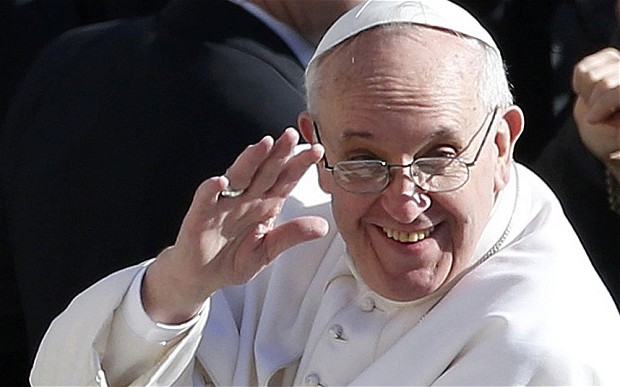The role of the pope of the Catholic Church in international affairs has changed drastically over the course of the position's history. The role's prominence began to develop in the 4th century. It's international relations began almost immediately. The establishment of a Holy Roman Emperor and its empire strengthened the pope's influence. The territory known as the Papal States were governed by the pope until 1870 when it was annexed by Italy. Popes have been known to use their skills as politicians and generals to increase their influence on the international stage.
Today, there are about 1.2 billion Catholics worldwide. This means that the pope still plays an important role in international relations.
Pope Francis the current pope. He governs over Vatican City and advises the global Catholic population. As a head of state, he enjoys privileges like diplomatic immunity, and the Holy See enjoys diplomatic relations with many states and member or observer status in several international organizations.
Early this month, Pope Francis traveled to Turkey in an attempt to build bridges between Christianity and Islam. Notably, Turkish President Erdogan discussed Islamic State (IS) with Francis, demonstrating the pope's ability to draw attention to an important topic. Erdogan made it clear that he blamed the rise of Islamophobia in the West as one of the main factors allowing the rise of IS. Francis spoke of poverty as a major driver for radicalization. He emphasized that Christians and Muslims must work together to defeat the violence of extremists. He also stated that it would be "wonderful" if all the Muslim leaders of the world - political, religious, and academic - clearly condemned the violence being done in the name of Islam. This would help the majority of Muslims offended by the stereotype of Islam and terrorism. It would also go far in easing tensions between Christian and Muslim populations.
Soon after his visit to Turkey, Francis made a statement denouncing modern slavery as a "crime against humanity" that is worsening every day. He spoke to the extent of the problem and its hidden nature. He gathered a group of faith leaders - representing Catholic, Anglican, and Orthodox Christianity, Judaism, Shiite and Sunni Islam, Buddhism, and Hinduism - at the Vatican to sign a declaration pledging to "inspire spiritual and practical action by all global faiths and people of good will everywhere" to eradicate slavery by 2020. This issue is one of global concern with an estimated 35.8 million people enslaved worldwide, including developed nations.
A common theme in Francis's work is building bridges and easing tensions between groups. He took a big step towards the resolution of a millennium old division in early December when he signed, together with Orthodox leader Patriarch Bartholomew I, a declaration committing to unity between the two churches.
But Francis takes this drive for conflict resolution further than church affairs. Pope Francis has advocated for normalized relations between the US and Cuba for some time. Last summer, Francis wrote a letter making a personal plea to President Obama on this topic. Indeed, when the two had met in March, they discussed the issue. The Vatican also hosted talks between US and Cuban delegations in October. President Obama acknowledged the role of the pope in his announcement of the US policy shift on Cuba saying "I want to thank His Holiness, Pope Francis, whose moral example shows us the importance of pursuing the world as it should be, rather than simply settling for the world as it is." Francis does indeed appear intent on the pursuit of a better world, and his involvement in world affairs will undoubtedly increase as he stretches his influence to achieve it.


No comments:
Post a Comment